
Labuan Bajo: The Gateway to Komodo Adventures
Labuan Bajo, situated on the western tip of Flores Island in Indonesia, is a gem waiting to be explored. Known as the gateway to the world-renowned Komodo National Park, it offers a unique blend of natural beauty, adventure, and cultural richness. The town itself is small but bustling, with a charming harbor that opens up to stunning views of the sea and nearby islands. One of the primary attractions is the opportunity to see the famous Komodo dragons in their natural habitat. A short boat ride will take you to Komodo Island and Rinca Island, where guided tours provide a safe and educational experience. In addition to the dragons, the park is home to diverse marine life, making it a paradise for snorkeling and diving enthusiasts. The crystal-clear waters reveal vibrant coral reefs, schools of colorful fish, and even the occasional manta ray or turtle. Labuan Bajo is not just about adventure; it also offers a taste of local culture. The town has a variety of restaurants that serve both Indonesian and international cuisines, with seafood being a highlight. Local markets and shops offer handcrafted souvenirs, from intricate textiles to unique jewelry. For a truly memorable experience, visit the Cunca Wulang Waterfall or take a sunset cruise to enjoy the breathtaking views of the archipelago. As Labuan Bajo continues to grow as a tourist destination, it still retains its laid-back, welcoming atmosphere. Whether you're an adventurer, a culture enthusiast, or just looking to relax, Labuan Bajo has something to offer everyone.
Local tips in Labuan Bajo
- Best time to visit is during the dry season (April to December) for optimal weather and clear waters.
- Book Komodo National Park tours in advance, especially during peak season, to ensure availability.
- Pack reef-safe sunscreen and insect repellent to protect both yourself and the environment.
- Local ATMs may have limited cash; it's wise to bring enough currency for your stay.
- Respect local customs and dress modestly when visiting cultural sites and villages.
Labuan Bajo: The Gateway to Komodo Adventures
Labuan Bajo, situated on the western tip of Flores Island in Indonesia, is a gem waiting to be explored. Known as the gateway to the world-renowned Komodo National Park, it offers a unique blend of natural beauty, adventure, and cultural richness. The town itself is small but bustling, with a charming harbor that opens up to stunning views of the sea and nearby islands. One of the primary attractions is the opportunity to see the famous Komodo dragons in their natural habitat. A short boat ride will take you to Komodo Island and Rinca Island, where guided tours provide a safe and educational experience. In addition to the dragons, the park is home to diverse marine life, making it a paradise for snorkeling and diving enthusiasts. The crystal-clear waters reveal vibrant coral reefs, schools of colorful fish, and even the occasional manta ray or turtle. Labuan Bajo is not just about adventure; it also offers a taste of local culture. The town has a variety of restaurants that serve both Indonesian and international cuisines, with seafood being a highlight. Local markets and shops offer handcrafted souvenirs, from intricate textiles to unique jewelry. For a truly memorable experience, visit the Cunca Wulang Waterfall or take a sunset cruise to enjoy the breathtaking views of the archipelago. As Labuan Bajo continues to grow as a tourist destination, it still retains its laid-back, welcoming atmosphere. Whether you're an adventurer, a culture enthusiast, or just looking to relax, Labuan Bajo has something to offer everyone.
When is the best time to go to Labuan Bajo?
Iconic landmarks you can’t miss
Komodo National Park
Discover the wonders of Komodo National Park, home to the iconic Komodo dragons and breathtaking landscapes, perfect for adventure and nature lovers.

Meruorah Komodo Labuan Bajo
Experience luxury and nature at Meruorah Komodo Labuan Bajo, a perfect blend of comfort and adventure in Indonesia's stunning landscape.
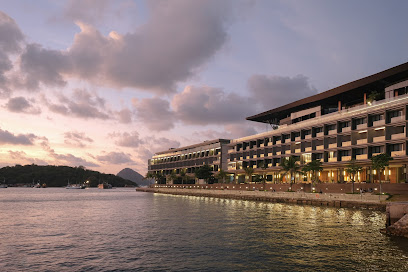
Loh Liang - Komodo National Park
Explore the breathtaking beauty of Loh Liang in Komodo National Park, where adventure meets the unique wildlife of Indonesia's tropical paradise.

Rangko Cave
Discover the enchanting Rangko Cave in East Nusa Tenggara, where crystal-clear waters and stunning rock formations await adventurous travelers.
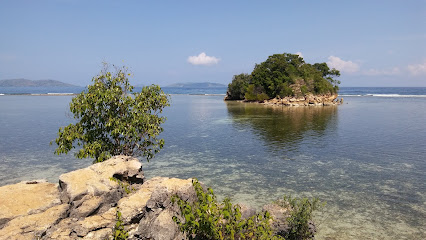
Bukit Amelia Sea Labuan Bajo
Discover the stunning Bukit Amelia Sea in Labuan Bajo, where breathtaking views and vibrant nature create an unforgettable travel experience.
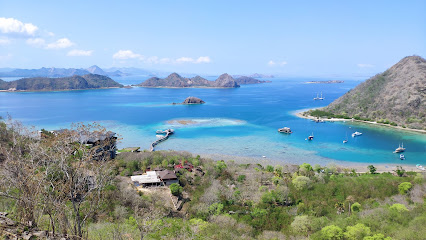
Plataran Komodo Resort & Spa
Discover the perfect blend of luxury and nature at Plataran Komodo Resort & Spa, your gateway to the breathtaking Komodo National Park.
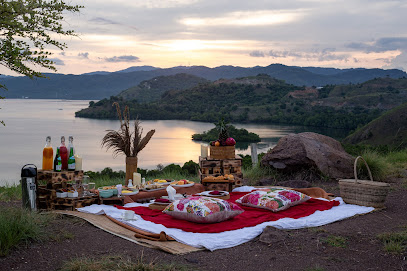
Komodo International Airport
Experience the stunning beauty of East Nusa Tenggara at Komodo International Airport, the gateway to adventure and the iconic Komodo National Park.
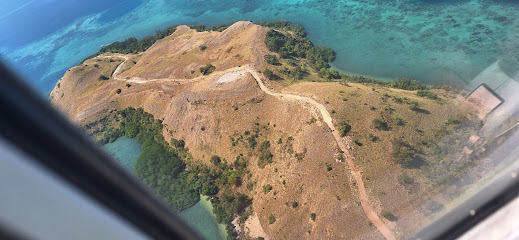
Paradise BAR
Experience vibrant nightlife and stunning views at Paradise BAR in Labuan Bajo, a must-visit destination for every traveler.
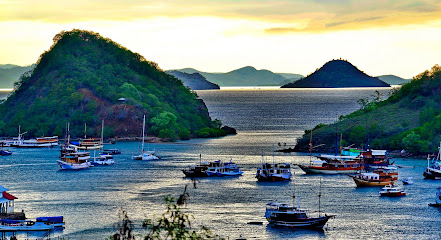
Maison Belmont
Indulge in the best ice cream at Maison Belmont, Labuan Bajo, where every scoop is made with love and tropical flavors await.
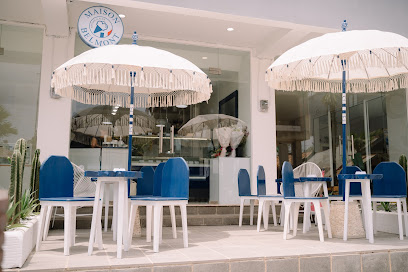
Melo Village
Explore Melo Village: A Hidden Gem in East Nusa Tenggara with Stunning Landscapes and Rich Cultural Heritage.
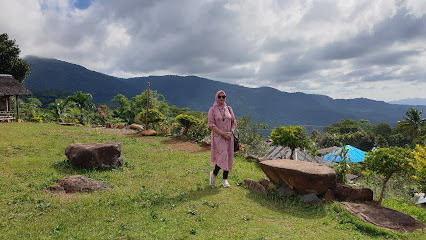
Komodo Lodge
Experience the beauty of Labuan Bajo at Komodo Lodge, your cozy base for exploring the wonders of Komodo National Park and its breathtaking surroundings.

Pavilla Labuan Bajo
Experience relaxation and adventure at Pavilla Labuan Bajo, your gateway to the stunning landscapes of Flores and Komodo National Park.
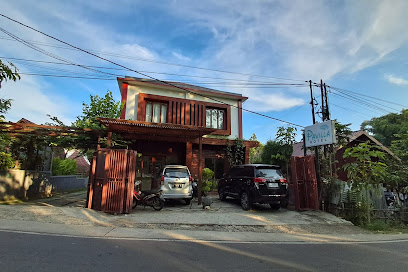
Atlantis On The Rock
Experience exquisite dining at Atlantis On The Rock in Labuan Bajo, where stunning ocean views meet the flavors of Indonesia.
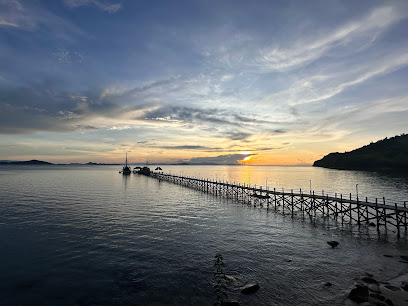
Komodo Flores
Experience the breathtaking beauty and unique wildlife of Komodo Flores, a top destination for adventure seekers and nature lovers alike.

Flamingo Avia Bajo
Experience the perfect blend of relaxation and culinary delight at Flamingo Avia Bajo, your gateway to the enchanting Labuan Bajo and Komodo National Park.

Unmissable attractions to see
Wisata Kuliner Kita-Kita Kampung Ujung
Explore the culinary wonders at Wisata Kuliner Kita-Kita Kampung Ujung, where local flavors meet vibrant atmosphere in Labuan Bajo.
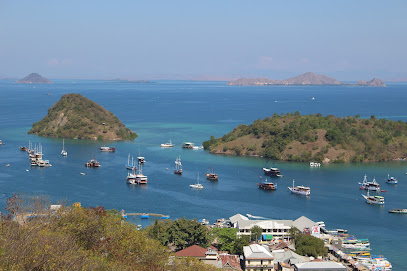
Loh Liang - Komodo National Park
Explore Loh Liang, the gateway to Komodo National Park, where stunning landscapes meet unique wildlife adventures in Indonesia.
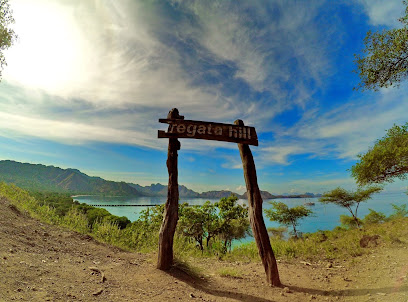
Cunca Rami Waterfall
Experience the stunning beauty of Cunca Rami Waterfall, a hidden natural wonder in East Nusa Tenggara, perfect for adventure and relaxation.
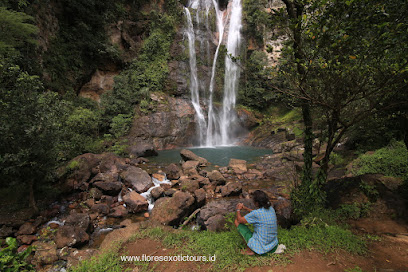
Pantai Wae Rana
Experience the serene beauty of Pantai Wae Rana, a hidden beach gem in Labuan Bajo, East Nusa Tenggara, perfect for relaxation and snorkeling.
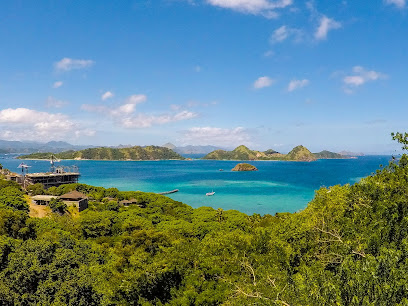
Rumah Tenun Baku Peduli
Discover the essence of Flores at Rumah Tenun Baku Peduli, where art, culture, and community come together in Labuan Bajo.
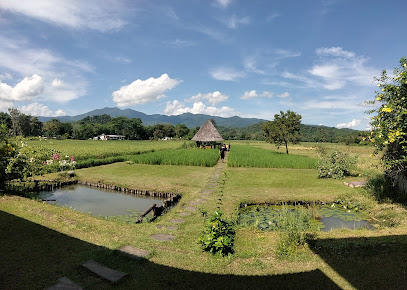
PARAPUAR View Point
Discover breathtaking views and serene beauty at Parapuar View Point, a must-visit tourist attraction in Labuan Bajo, East Nusa Tenggara.
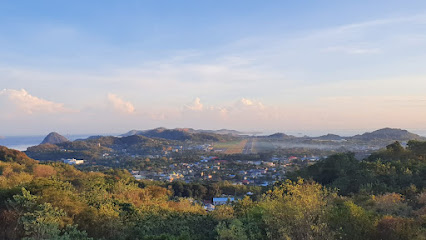
Paket Wisata Labuan Bajo - Sunrise Indonesia
Explore the stunning beauty of Labuan Bajo with Sunrise Indonesia, your ultimate guide to unforgettable boat tours and natural wonders in Komodo National Park.
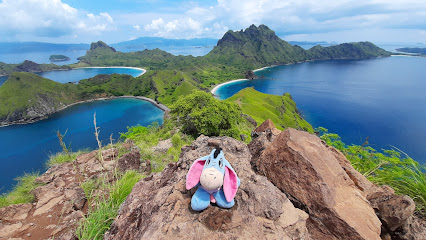
Trip Labuan Bajo INDONESIA - Paket Wisata Labuan Bajo - Sewa Kapal Labuan Bajo
Discover the stunning landscapes and vibrant marine life of Labuan Bajo, the gateway to Indonesia’s Komodo National Park.
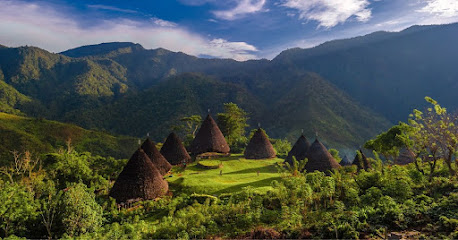
Nagia Flores Wisata
Discover the beauty of Flores and Komodo with Nagia Flores Wisata, your trusted travel agency for unforgettable adventures and experiences.
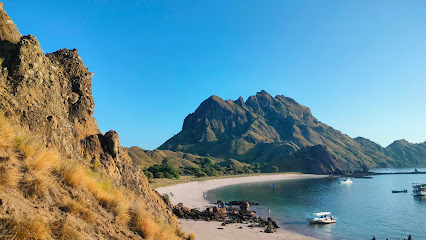
Taman Kampung Air Labuan Bajo
Discover tranquility at Taman Kampung Air Labuan Bajo, a lush garden oasis in East Nusa Tenggara, perfect for relaxation and nature lovers.
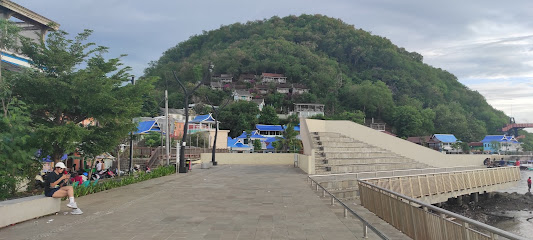
Photo Spot Labuan Bajo
Discover breathtaking views and stunning photography opportunities at Photo Spot Labuan Bajo, a natural gem in Indonesia's East Nusa Tenggara.
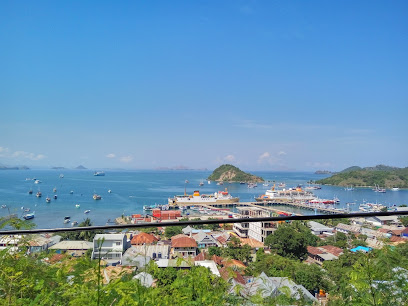
Pulau Kalong
Discover the serene beauty of Pulau Kalong in Komodo National Park, where nature's wonders and vibrant sunsets await every traveler.
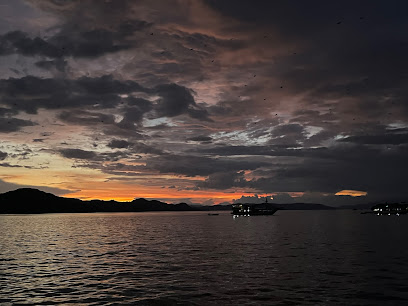
BDF
Explore the natural wonders and vibrant culture of BDF in Labuan Bajo, a must-visit destination in East Nusa Tenggara, Indonesia.
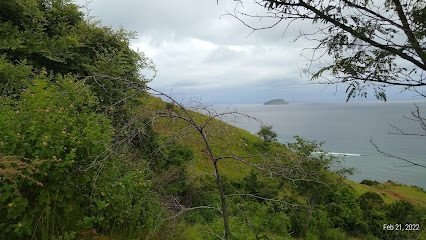
Pavilion off shore
Explore the serene beauty of Pavilion Off Shore, a hidden gem in East Nusa Tenggara, perfect for nature lovers and photography enthusiasts.
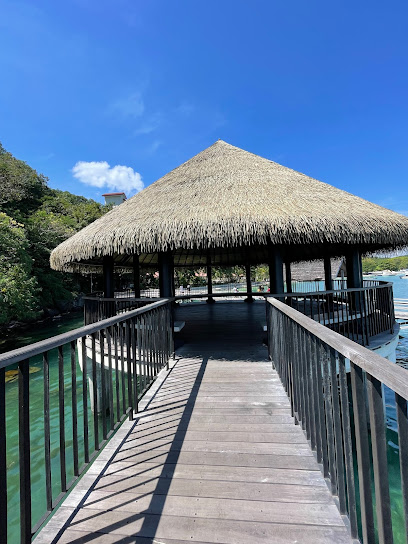
LABUAN BAJO TOUR
Explore Labuan Bajo, a breathtaking harbor town in East Nusa Tenggara, the gateway to the stunning Komodo Islands and home to rich marine biodiversity.
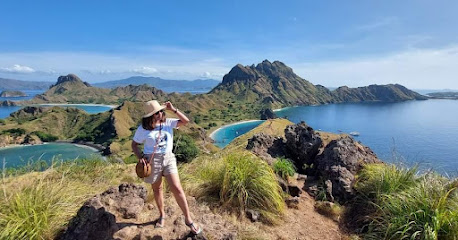
Essential places to dine
Taman Laut Handayani Seafood Restaurant Labuan Bajo
Experience exquisite seafood dining at Taman Laut Handayani Restaurant in Labuan Bajo—where local flavors meet breathtaking ocean views.
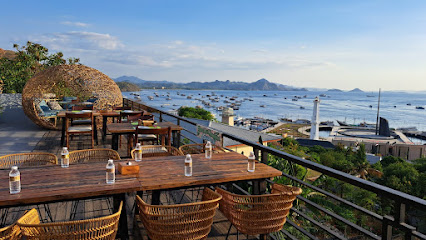
La Cucina
Savor authentic Italian flavors at La Cucina in Labuan Bajo - where gourmet pizzas meet stunning coastal views.
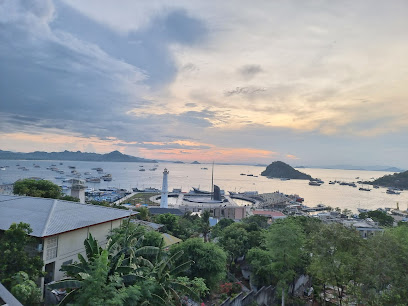
Pondok Mai Ceng'go Labuan Bajo
Experience authentic Indonesian flavors at Pondok Mai Ceng'go in Labuan Bajo – where culinary tradition meets stunning scenery.
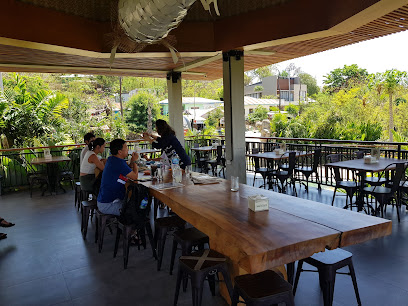
Happy Banana Komodo
Experience exquisite Japanese and organic fusion cuisine at Happy Banana Komodo in Labuan Bajo – where every dish tells a story.
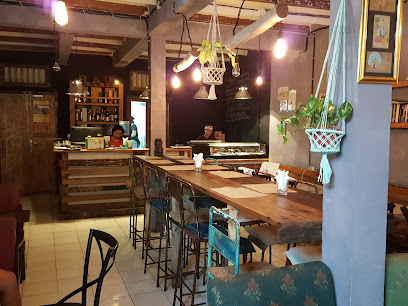
MadeInItaly Ristorante Italiano
Savor authentic Italian flavors at MadeInItaly Ristorante Italiano in Labuan Bajo – where exquisite cuisine meets breathtaking views.
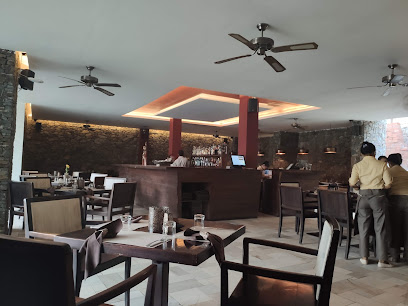
Green Cherry
Discover Green Cherry in Labuan Bajo: where Italian flavors meet fresh seafood and vegetarian delights in a cozy atmosphere.
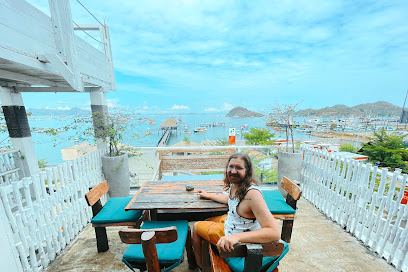
Artomoro Restaurant and Grill
Discover authentic Indonesian cuisine at Artomoro Restaurant and Grill in Labuan Bajo—where fresh seafood meets breathtaking views.
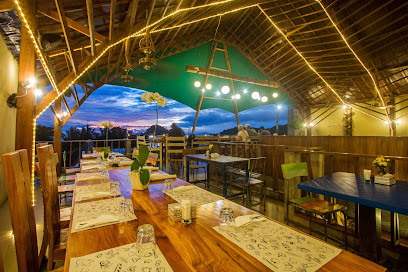
Baccalá
Experience exquisite Italian cuisine with local flavors at Baccalá in Labuan Bajo - a must-visit culinary destination.
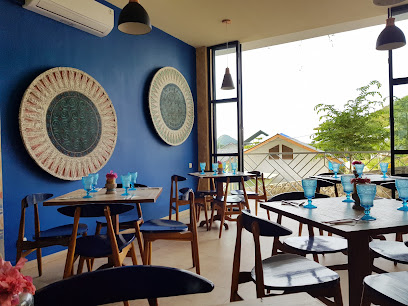
Hong Signature Restaurant
Experience exquisite dining at Hong Signature Restaurant in Labuan Bajo, where traditional flavors meet modern culinary artistry amidst breathtaking views.
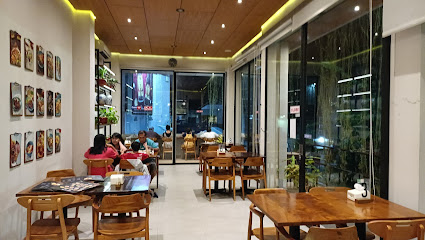
Molas Cafe
Discover Molas Cafe in Labuan Bajo for fresh seafood and authentic Indonesian flavors amidst stunning coastal views.
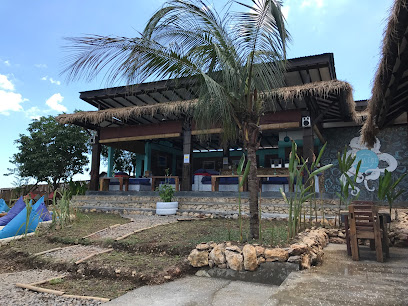
Pesona Bali
Discover authentic Balinese seafood delights at Pesona Bali in Labuan Bajo - where taste meets breathtaking views.
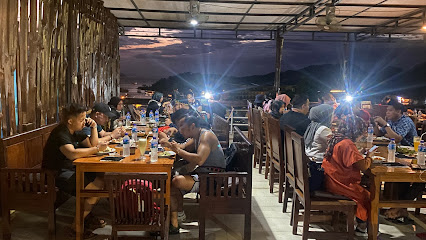
PIZZA HAUS BAJO
Experience authentic Italian flavors at Pizza Haus Bajo in Labuan Bajo - where fresh ingredients meet local charm.
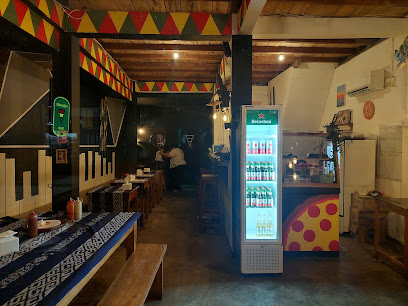
MIMAMORI CAFE LABUAN BAJO
Discover MIMAMORI Cafe Labuan Bajo – where health meets taste amidst stunning views in Indonesia's paradise.
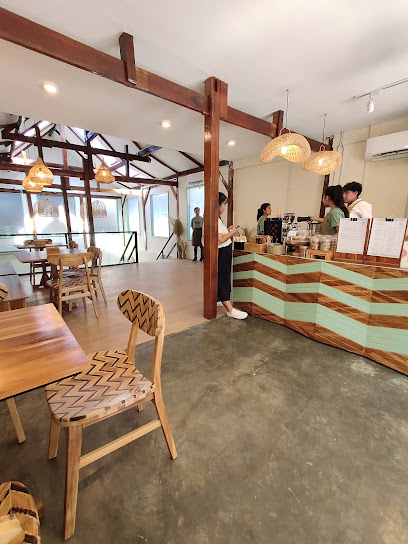
Senja Eatery
Discover the true taste of Indonesia at Senja Eatery in Labuan Bajo – where every meal is a flavorful journey.
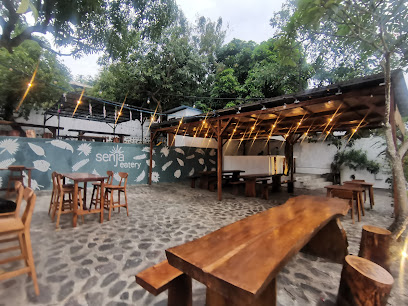
Sesto Senso Restaurant and Lounge
Experience culinary excellence at Sesto Senso Restaurant and Lounge in Labuan Bajo with stunning views and exquisite flavors.
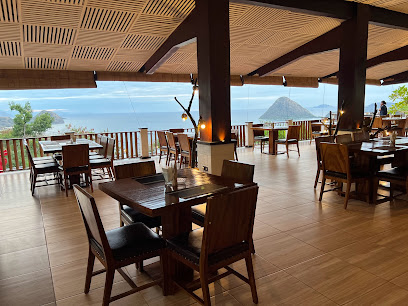
Markets, malls and hidden boutiques
Exotic Komodo Souvenir Shop
Explore the Exotic Komodo Souvenir Shop for authentic crafts and treasures that capture the spirit of Indonesia's beautiful Komodo Island.
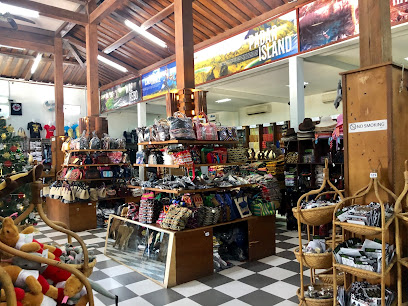
ROXY MART
Discover a wide range of local and international products at Roxy Mart, your ultimate supermarket destination in Labuan Bajo, Indonesia.
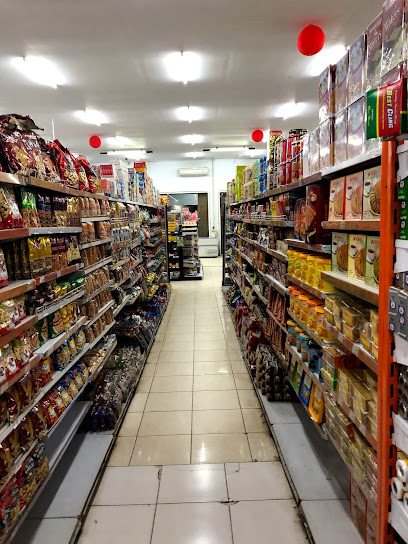
Kado Bajo Souvenir Store
Discover the essence of Labuan Bajo at Kado Bajo Souvenir Store, where authentic Indonesian crafts and local artistry come together in a delightful shopping experience.
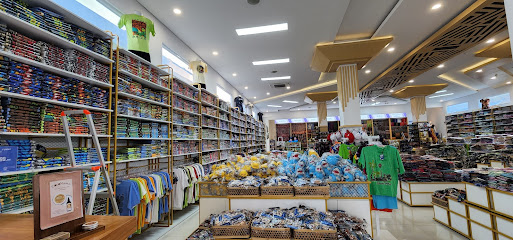
Labuan Square
Discover Labuan Square: A vibrant shopping mall in Nusa Tenggara Tim, offering shopping, dining, and delightful local experiences.

Komodo Giftshop
Discover the charm of Labuan Bajo at Komodo Giftshop, where local crafts and unique souvenirs await every visitor.
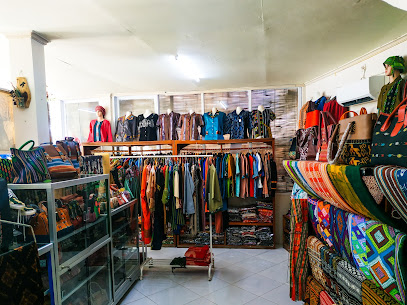
Kulas Store
Explore the vibrant fashion scene at Kulas Store in Labuan Bajo, where local culture meets contemporary style in the heart of Indonesia.
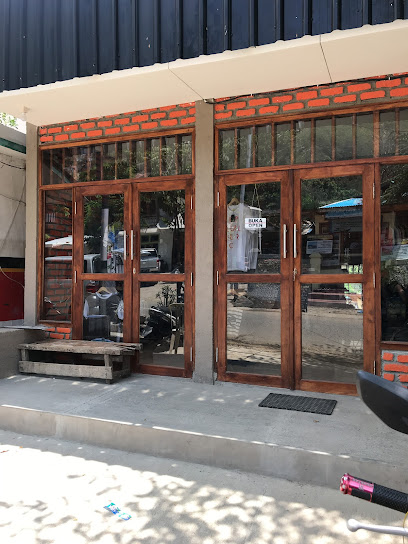
Indo Latifah (Home Industry) Original Snack From Labuan Bajo
Discover the authentic taste of Labuan Bajo at Indo Latifah, where original snacks bring Indonesian flavors to life in a delightful deli atmosphere.
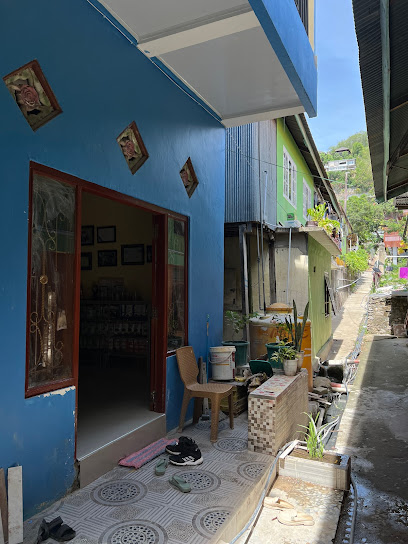
eksotic komodo
Discover the vibrant culture of Indonesia at Eksotic Komodo, where shopping meets local artistry in the heart of Labuan Bajo.
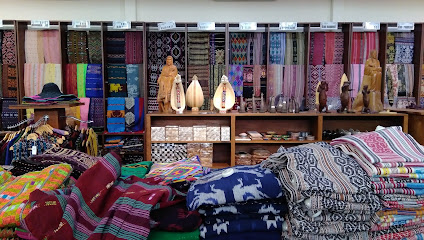
asri souvenir shop
Discover authentic souvenirs and handicrafts at Asri Souvenir Shop in Labuan Bajo, your gateway to local culture and unique gifts.
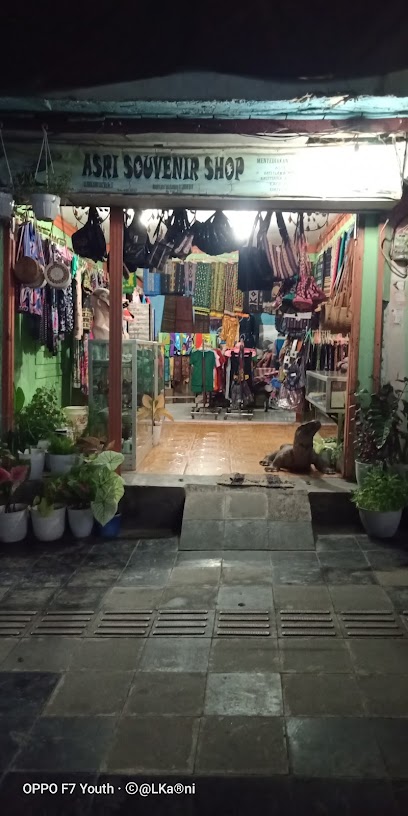
KIOS LABUAN BAJO (ONLINE STORE)
Explore Kios Labuan Bajo for unique gifts and souvenirs that embody the spirit of Indonesia's beautiful Labuan Bajo region.
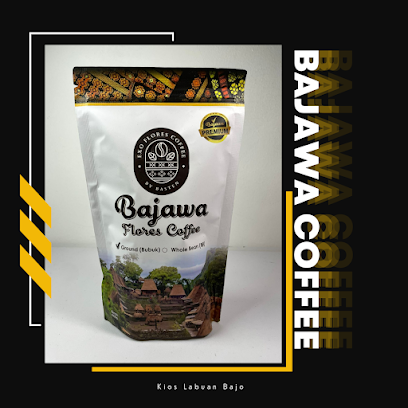
@sevensunset_traditionalcake
Discover the authentic flavors of Indonesia at Seven Sunset Traditional Cake in Labuan Bajo, where every bite tells a story of tradition and taste.
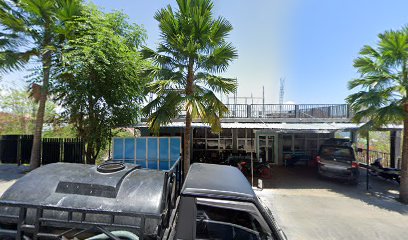
FILA shop
Discover stylish sportswear and trendy apparel at the FILA shop in Labuan Bajo's Marina Mall.
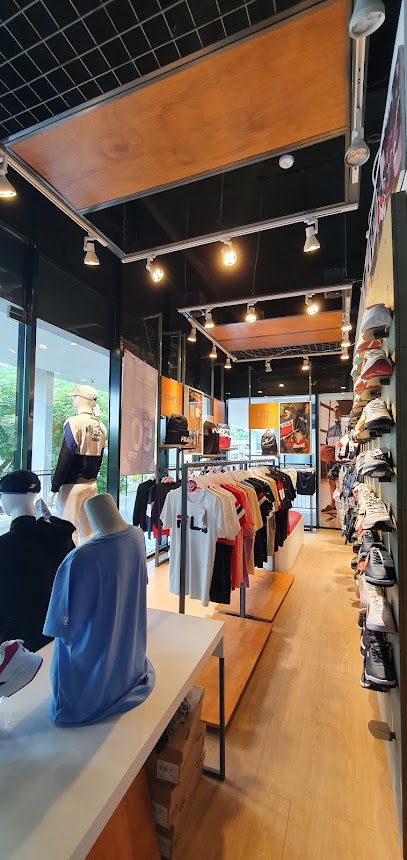
ata flores store
Explore Ata Flores Store in Labuan Bajo for unique souvenirs and local fashion, capturing the essence of Nusa Tenggara's vibrant culture.
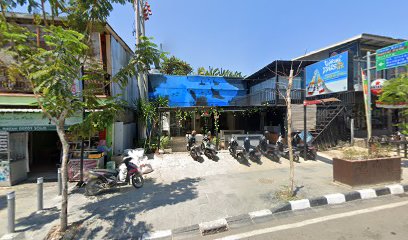
Lely Art Shop
Discover authentic Indonesian handicrafts at Lely Art Shop in Labuan Bajo, your go-to destination for unique souvenirs and local artistry.

Noverika Boutique
Discover unique fashion treasures at Noverika Boutique in Labuan Bajo, where local culture meets contemporary style.
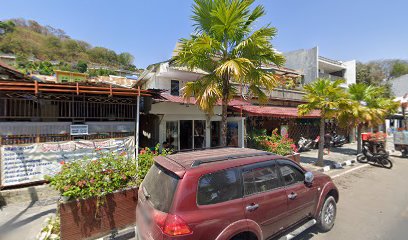
Essential bars & hidden hideouts
Paradise BAR
Discover the vibrant atmosphere and stunning sunset views at Paradise BAR in Labuan Bajo, the perfect spot for relaxation and nightlife.
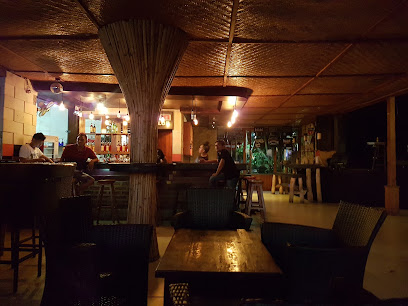
Conflict zone Bar&Resto
Discover the lively ambiance and unique flavors at Conflict Zone Bar&Resto in Labuan Bajo, the perfect spot for travelers seeking a taste of local culture.
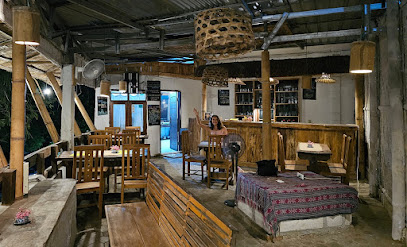
101 Barrique
Experience the charm of Labuan Bajo at 101 Barrique, a wine bar offering exquisite wines, local cuisine, and stunning views in the heart of Komodo.
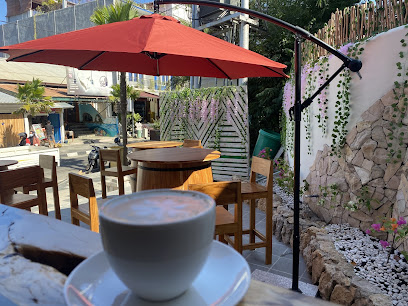
Warung Hafenblick - food & drink
Experience the vibrant nightlife of Labuan Bajo at Warung Hafenblick, where breathtaking sunsets, delicious food, and live music await.
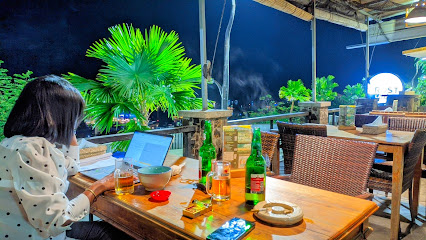
Beer o'Clock Bajo
Discover the lively charm of Beer o'Clock Bajo, your ultimate bar destination in Labuan Bajo, offering great drinks and a vibrant atmosphere.
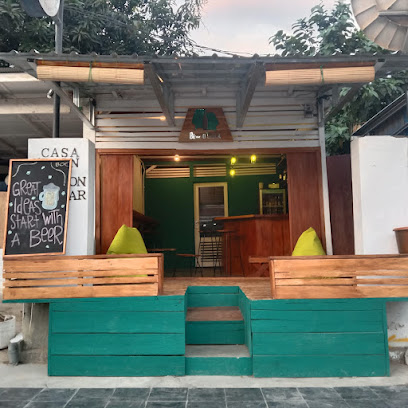
DEJA'VU BAR 2.0 Labuan Bajo, Flores
Discover the lively atmosphere and exquisite cocktails at DEJA'VU BAR 2.0, the premier nightlife destination in Labuan Bajo, Flores.
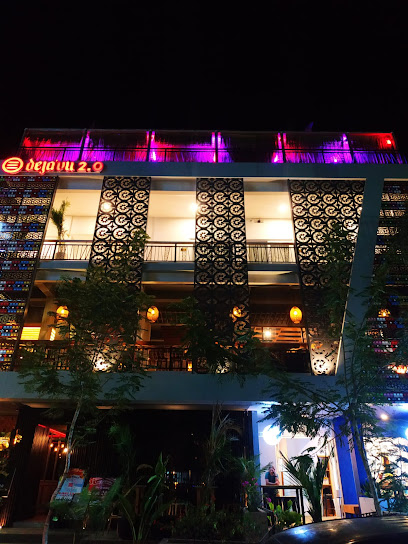
Mesa Lobby Lounge
Experience relaxation at Mesa Lobby Lounge, where stunning beach views and exquisite refreshments create the perfect tropical getaway.
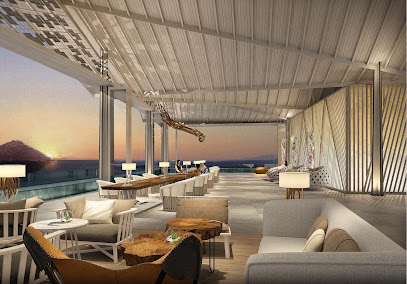
UNIQUE Rooftop Bar
Discover the breathtaking views and exquisite cocktails at UNIQUE Rooftop Bar in Labuan Bajo's AYANA Komodo Waecicu Beach.
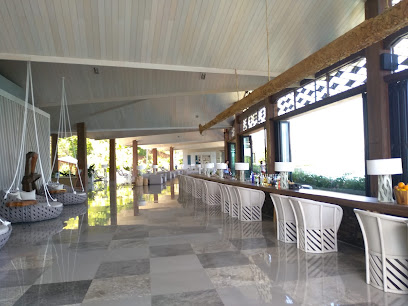
Wae Cicu Bar
Experience the breathtaking views and vibrant atmosphere at Wae Cicu Bar, your tropical escape in Labuan Bajo, East Nusa Tenggara.
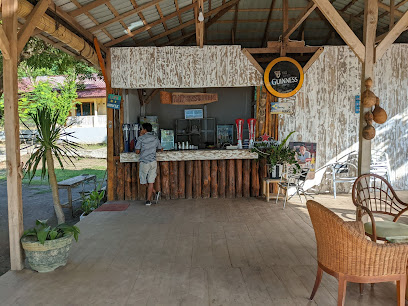
Naga Bar
Experience the serene atmosphere of Naga Bar at AYANA Komodo Resort, where stunning views and refreshing drinks create the perfect escape.
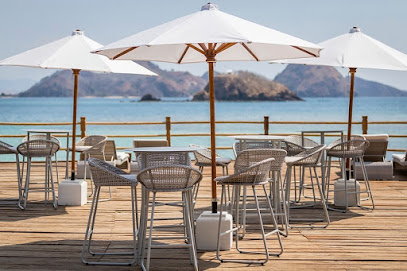
Bajo Booze
Experience the vibrant nightlife of Labuan Bajo at Bajo Booze, where signature cocktails and local flavors meet a lively atmosphere.
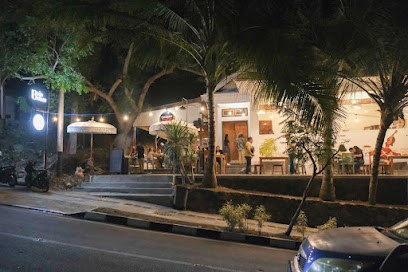
JANESA CAFE
Discover a lively oasis in Labuan Bajo at Janesa Cafe, where delicious drinks and stunning sunsets meet in perfect harmony.
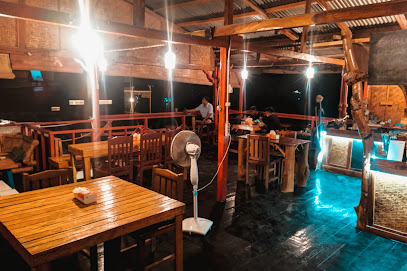
Mabuk Bar
Experience vibrant nightlife and local flavors at Mabuk Bar in Labuan Bajo, a perfect blend of relaxation and entertainment.
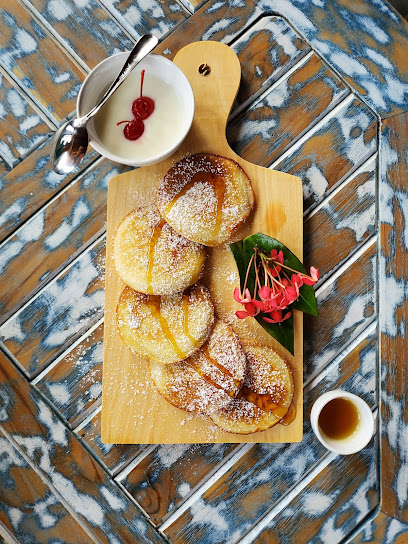
KEDAI LAMBU
Discover Kedai Lambu, a cozy bar in Wae Kelambu offering local drinks and vibrant atmosphere amidst the stunning beauty of Komodo.
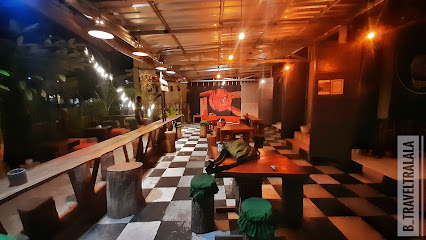
Se Besek
Experience the vibrant nightlife at Se Besek, Labuan Bajo's premier bar, offering stunning views and refreshing local cocktails.
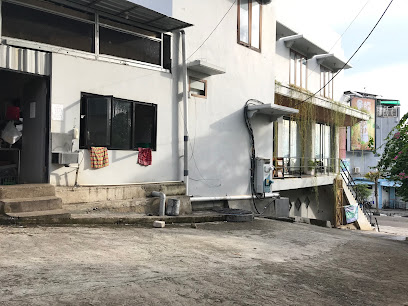
Local Phrases about Labuan Bajo
-
- HelloHalo
[ha-lo] - GoodbyeSelamat tinggal
[se-la-mat ting-gal] - YesYa
[ya] - NoTidak
[ti-dak] - Please/You're welcomeTolong
[to-long] - Thank youTerima kasih
[te-ri-ma ka-sih] - Excuse me/SorryMaaf
[ma-af] - How are you?Apa kabar?
[a-pa ka-bar] - Fine. And you?Baik. Dan kamu?
[bai-k. dan ka-mu] - Do you speak English?Bisa bicara bahasa Inggris?
[bi-sa bi-tsa-ra ba-ha-sa ing-gris] - I don't understandSaya tidak mengerti
[sa-ya ti-dak men-ger-ti]
- HelloHalo
-
- I'd like to see the menu, pleaseSaya ingin melihat menu, tolong
[sa-ya in-gin me-li-hat me-nu, to-long] - I don't eat meatSaya tidak makan daging
[sa-ya ti-dak ma-kan da-ging] - Cheers!Selamat minum!
[se-la-mat mi-num] - I would like to pay, pleaseSaya ingin membayar, tolong
[sa-ya in-gin mem-ba-yar, to-long]
- I'd like to see the menu, pleaseSaya ingin melihat menu, tolong
-
- Help!Tolong!
[to-long] - Go away!Pergi!
[per-gi] - Call the Police!Panggil polisi!
[pang-gil po-li-si] - Call a doctor!Panggil dokter!
[pang-gil dok-ter] - I'm lostSaya tersesat
[sa-ya ter-se-sat] - I'm illSaya sakit
[sa-ya sa-kit]
- Help!Tolong!
-
- I'd like to buy...Saya ingin membeli...
[sa-ya in-gin mem-be-li] - I'm just lookingSaya hanya melihat-lihat
[sa-ya han-ya me-li-hat-li-hat] - How much is it?Berapa harganya?
[be-ra-pa har-ga-nya] - That's too expensiveItu terlalu mahal
[i-tu ter-la-lu ma-hal] - Can you lower the price?Bisa kurangi harganya?
[bi-sa ku-ran-gi har-ga-nya]
- I'd like to buy...Saya ingin membeli...
-
- What time is it?Jam berapa sekarang?
[jam be-ra-pa se-ka-rang] - It's one o'clockPukul satu
[pu-kul sa-tu] - Half past (10)Setengah (sepuluh)
[se-ten-gah (se-pu-luh)] - MorningPagi
[pa-gi] - AfternoonSore
[so-re] - EveningMalam
[ma-lam] - YesterdayKemarin
[ke-ma-rin] - TodayHari ini
[ha-ri i-ni] - TomorrowBesok
[be-sok] - 1Satu
[sa-tu] - 2Dua
[du-a] - 3Tiga
[ti-ga] - 4Empat
[em-pat] - 5Lima
[li-ma] - 6Enam
[e-nam] - 7Tujuh
[tu-juh] - 8Delapan
[de-la-pan] - 9Sembilan
[sem-bi-lan] - 10Sepuluh
[se-pu-luh]
- What time is it?Jam berapa sekarang?
-
- Where's a/the...?Dimana...
[di-ma-na] - What's the address?Alamatnya apa?
[a-lam-at-nya a-pa] - Can you show me (on the map)?Bisa tunjukkan saya (di peta)?
[bi-sa tun-juk-kan sa-ya (di pe-ta)] - When's the next (bus)?Kapan yang berikutnya (bus)?
[ka-pan yang be-ri-kut-nya (bus)] - A ticket (to ....)Tiket (ke ....)
[ti-ket (ke)]
- Where's a/the...?Dimana...
History of Labuan Bajo
-
Before the arrival of European explorers, the area now known as Labuan Bajo was inhabited by indigenous tribes, including the Manggarai people. These tribes lived off the land, fishing and engaging in small-scale farming. Oral traditions and artifacts suggest a rich cultural heritage that included intricate weaving and traditional music.
-
In the 19th century, Labuan Bajo, along with other parts of Flores Island, came under the influence of the Dutch East Indies. The Dutch established administrative posts and introduced Christianity, which led to significant changes in the social and cultural fabric of the local communities. The remnants of Dutch architecture and old churches can still be seen today.
-
During World War II, Labuan Bajo and the surrounding areas were occupied by Japanese forces. The region's strategic location made it a point of interest for military operations. Local oral histories recount stories of hardship and resistance during this period.
-
Following Indonesia's independence in 1945, Labuan Bajo remained a relatively quiet fishing village for several decades. However, the Indonesian government’s focus on regional development in the 1970s and 1980s brought infrastructural improvements, such as roads and schools, to the area.
-
In the late 20th and early 21st centuries, Labuan Bajo gained international recognition as a gateway to Komodo National Park, a UNESCO World Heritage Site. The park is home to the famous Komodo dragons, diverse marine life, and pristine coral reefs. This boom in ecotourism has transformed Labuan Bajo into a bustling town with numerous hotels, restaurants, and tour operators.
-
In recent years, there has been a growing movement to preserve and revive the traditional cultures of the Manggarai people. Efforts include the revitalization of traditional dances, music, and textiles. Cultural festivals are now held annually, attracting both locals and tourists.
Labuan Bajo Essentials
-
Labuan Bajo, located on the western tip of Flores Island in Indonesia, can be accessed by air, sea, and land. The most convenient way is by air, with direct flights from Jakarta, Bali, and other major Indonesian cities to Komodo Airport (LBJ). For those preferring sea travel, Pelni ships and other ferries operate routes connecting Labuan Bajo with other parts of Indonesia. Overland travel is also possible from other parts of Flores Island, with buses and private cars being popular options.
-
Labuan Bajo is a small town, and many attractions are within walking distance. For longer distances, local modes of transportation include motorbike taxis (ojek), bemos (minivans), and regular taxis. Renting a scooter or a car is also a viable option for those who prefer to explore at their own pace. Boat charters are available for island-hopping and visiting nearby dive spots, including the famous Komodo National Park.
-
The official currency in Labuan Bajo is the Indonesian Rupiah (IDR). Credit cards are accepted in most hotels, restaurants, and larger shops, but smaller establishments and local markets often only accept cash. ATMs are readily available in the town, but it's advisable to carry enough cash when visiting remote areas or islands. Currency exchange services are available at banks and some hotels.
-
Labuan Bajo is generally safe for tourists, but it is always wise to take standard precautions. Avoid walking alone at night in poorly lit areas and keep an eye on your belongings in crowded places. Petty theft, such as pickpocketing, can occur, so it is best to stay vigilant. There are no specific high-crime areas targeting tourists, but always use common sense and be aware of your surroundings.
-
In case of emergency, dial 112 for immediate assistance. The local police station and medical facilities are available in Labuan Bajo. It is recommended to have travel insurance that covers medical emergencies. For minor health issues, there are pharmacies in town where you can purchase over-the-counter medications. The nearest hospital is Siloam Hospital in Labuan Bajo, which offers more comprehensive medical services.
-
Fashion: Do dress modestly, especially when visiting religious sites. Avoid wearing revealing clothing. Religion: Do respect local customs and traditions. Remove your shoes when entering homes and certain public buildings. Public Transport: Do be respectful and courteous to drivers and fellow passengers. Don't eat or drink on public transport. Greetings: Do greet people with a smile and a slight bow or handshake. Eating & Drinking: Do try local delicacies and accept food offerings graciously. Don't refuse hospitality, as it is considered impolite.
-
To experience Labuan Bajo like a local, visit the local markets where you can buy fresh produce, seafood, and traditional Indonesian goods. Engage with locals, as they are often friendly and willing to share stories about the town's history and culture. Don't miss visiting the fish market early in the morning for a unique local experience. For a memorable adventure, consider taking a liveaboard boat trip to explore the nearby islands and dive sites, including the world-renowned Komodo National Park.
Trending Landmarks in Labuan Bajo
-
Komodo National Park
-
Meruorah Komodo Labuan Bajo
-
Loh Liang - Komodo National Park
-
Rangko Cave
-
Bukit Amelia Sea Labuan Bajo
-
Plataran Komodo Resort & Spa
-
Komodo International Airport
-
Paradise BAR
-
Maison Belmont
-
Melo Village
-
Komodo Lodge
-
Pavilla Labuan Bajo
-
Atlantis On The Rock
-
Komodo Flores
-
Flamingo Avia Bajo
Nearby Cities to Labuan Bajo
-
Things To Do in Bali
-
Things To Do in Suai
-
Things To Do in Bobonaro
-
Things To Do in Ermera
-
Things To Do in Gleno
-
Things To Do in Aileu
-
Things To Do in Dili
-
Things To Do in Same
-
Things To Do in Baucau
-
Things To Do in Lospalos
-
Things To Do in Surabaya
-
Things To Do in Balikpapan
-
Things To Do in Yogyakarta
-
Things To Do in Semarang
-
Things To Do in Manado











